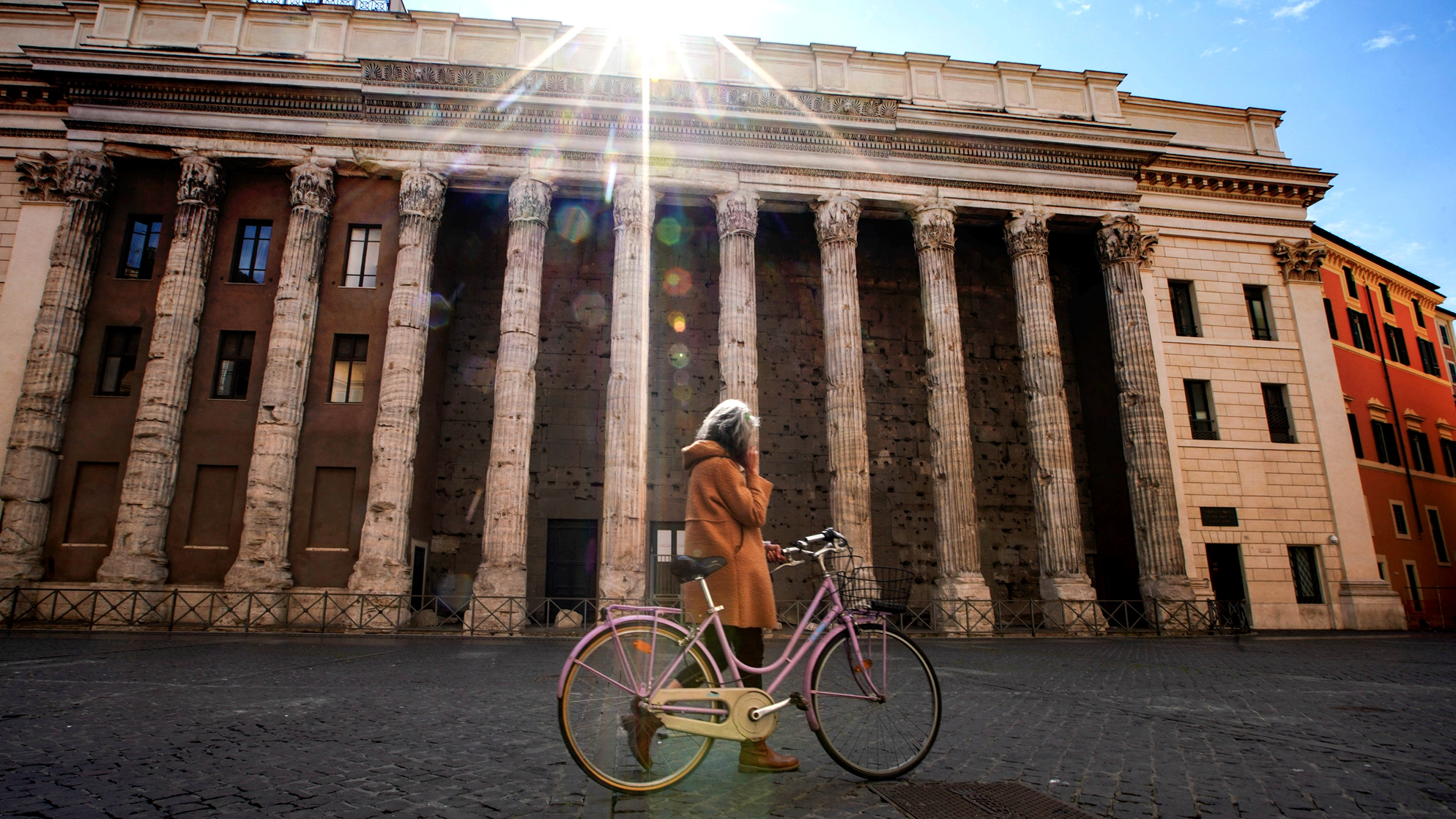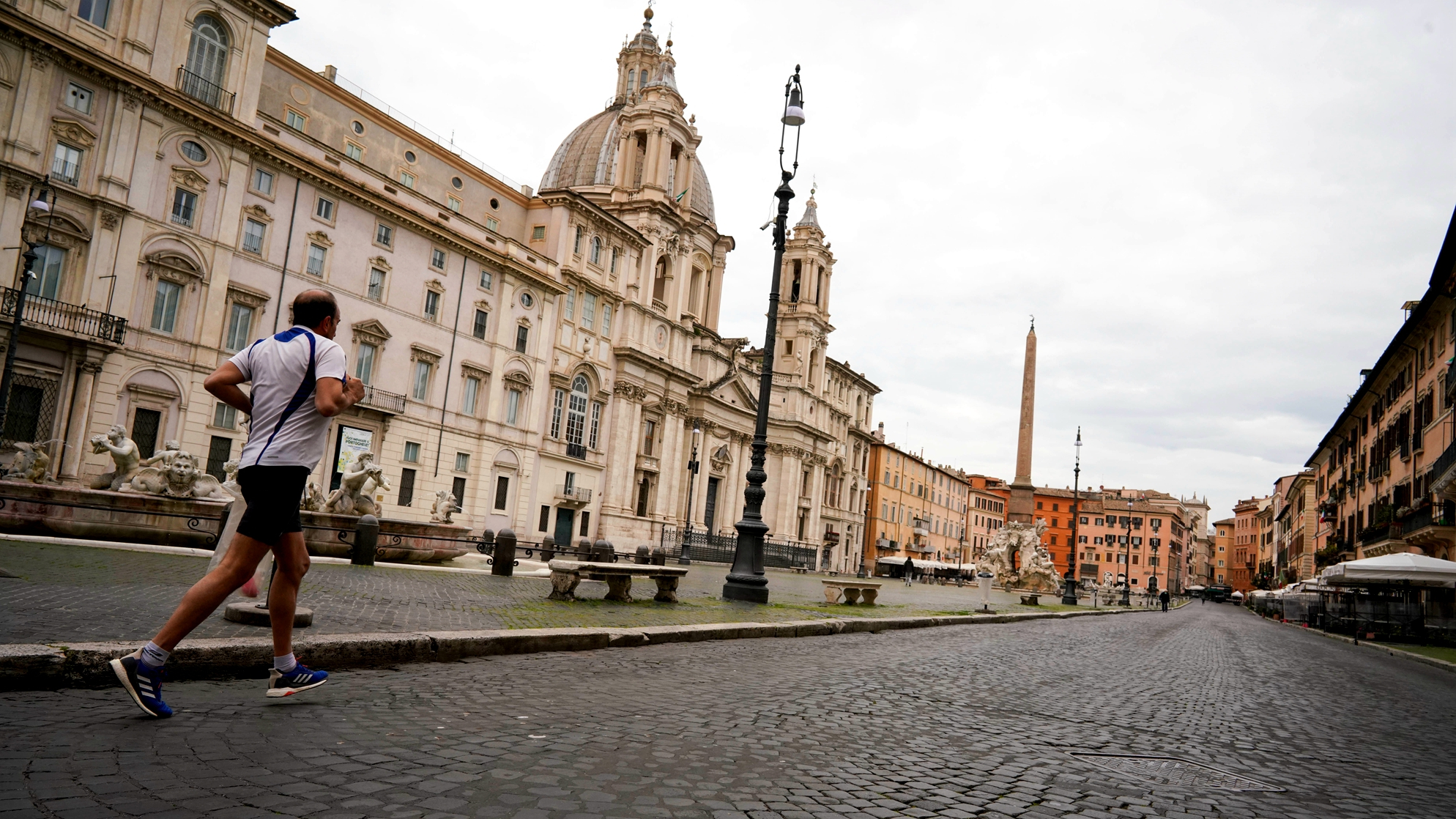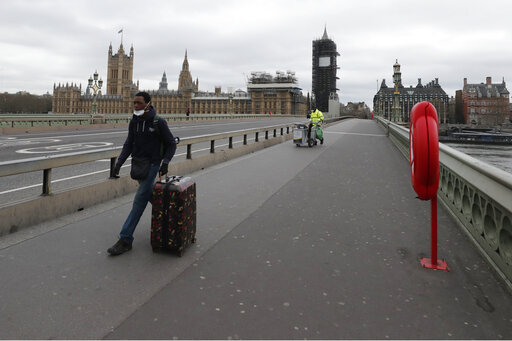Europe, the current epicenter of the COVID-19 pandemic, has seen some of its most popular tourist destinations impose stringent containment measures over the past few weeks in a bid to slow the spread of the novel coronavirus.
As of March 29, the sum of COVID-19 cases from the 10 most affected countries in Europe accounts for about half of the total number worldwide, statistics from World Health Organization (WHO) showed. Italy not only has the highest number of COVID-19 cases in Europe, but also recorded the most deaths from the disease in the world, which exceeded 10,000 on March 28.
In response to the skyrocketing number of infections,
European Union (EU) leaders issued a 30-day ban on non-essential travel to the 26 EU member states
on March 17, though it might be prolonged depending on the epidemic situation, according to European Commission president Ursula von der Leyen.
Some of the hardest-hit European countries have also implemented unprecedented measures, including border closures, lockdowns, flight suspensions and strict social distancing measures.

A woman walks in empty Piazza di Pietra square in Rome, Italy, March 18, 2020. /AP
Italy: A possible extension of national lockdown
Italy introduced
a nationwide lockdown on March 9
, urging its 60 million citizens not to leave their homes unless absolutely necessary. Schools, universities and non-essential businesses are closed except for supermarkets, pharmacies and post offices.
The restrictions are due to expire until April 3, but an extension is much likely to take place, according to the officials.
Regional Affairs Minister Francesco Boccia said the timing to announce the extension would be decided by Prime Minister Giuseppe Conte and the government based on data from the medical and scientific community.

A man runs in Piazza Navona Square, Rome, Italy, March 28, 2020. /AP
Spain: Stricter lockdown measures
As both deaths and infections of the novel coronavirus continue to climb, Spain imposed stricter lockdown measures after its decision to
extend the lockdown until April 11
. Non-essential workers must stay at home for the next two weeks, Spanish Prime Minister Pedro Sanchez announced on Saturday.
A day after a state of emergency was declared on March 13, the Spanish government put in place a blanket restriction on non-essential movement of the public. Shops and schools have been ordered to shut along with hotels and tourist accommodation.

The streets are deserted along Plaza del Castillo square during lockdown in Pamplona, northern Spain, March 28, 2020. /AP
Germany: Gatherings of over two people banned
With all schools and non-essential shops closed, Germany opted for strict social distancing measures on March 22. German Chancellor Angela Merkel called for a ban on gatherings with more than two people except for those who live in the same household.
These measures on public life will not be relaxed before April 20, Helge Braun, Chancellor Angela Merkel's chief of staff, said on Saturday.

A message demanding people to go home is sprayed on the ground of Alexanderplatz square in Berlin, Germany, March 30, 2020. /AP
France: A two-week lockdown extension
French Prime Minister Edouard Philippe announced on March 27 an extension of a nationwide lockdown by two weeks in an effort to curb the spread of the novel coronavirus epidemic across France.
Since March 17, France has been undergoing a nationwide lockdown, banning all public gatherings and telling residents to stay inside except for grocery shopping and other essential tasks.

The Eiffel Tower says 'Merci' (Thank You) to healthcare workers fighting against the COVID-19 epidemic in Paris, France, March 29, 2020. /AP
UK: COVID-19 restrictions may last months
UK Prime Minister Boris Johnson has ordered
a three-week lockdown on March 23
and urged people to stay at home and avoid traveling at all unless essential.
However, the lockdown measures in the UK might last for months and the death toll will probably get worse in the following weeks, according to Deputy Chief Medical Officer for England Jenny Harries.

A man wheels his suitcase across Westminster Bridge in London, March 30, 2020. /AP
Switzerland has closed schools, banned public gatherings of over 100 people, and limited access to restaurants, bars and clubs to a maximum of 50 people. Numerous ski resorts, including Zermatt, were also temporarily shut in mid-March.
As the Netherlands grapples with the COVID-19 pandemic, the Dutch government decided to strengthen an existing ban on public gatherings and extend it until June 1. Previously, all schools, restaurants, museums, theaters, sports clubs and other public places were ordered to shut.
The National Security Council (NSC) of Belgium announced a two-week extension of the country's lockdown measures until April 19. If no decrease in the number of hospital admissions is seen by then, the lockdown might remain in force until May 3, according to the NSC.
(Infographic designed by Du Chenxin)
 简体中文
简体中文







